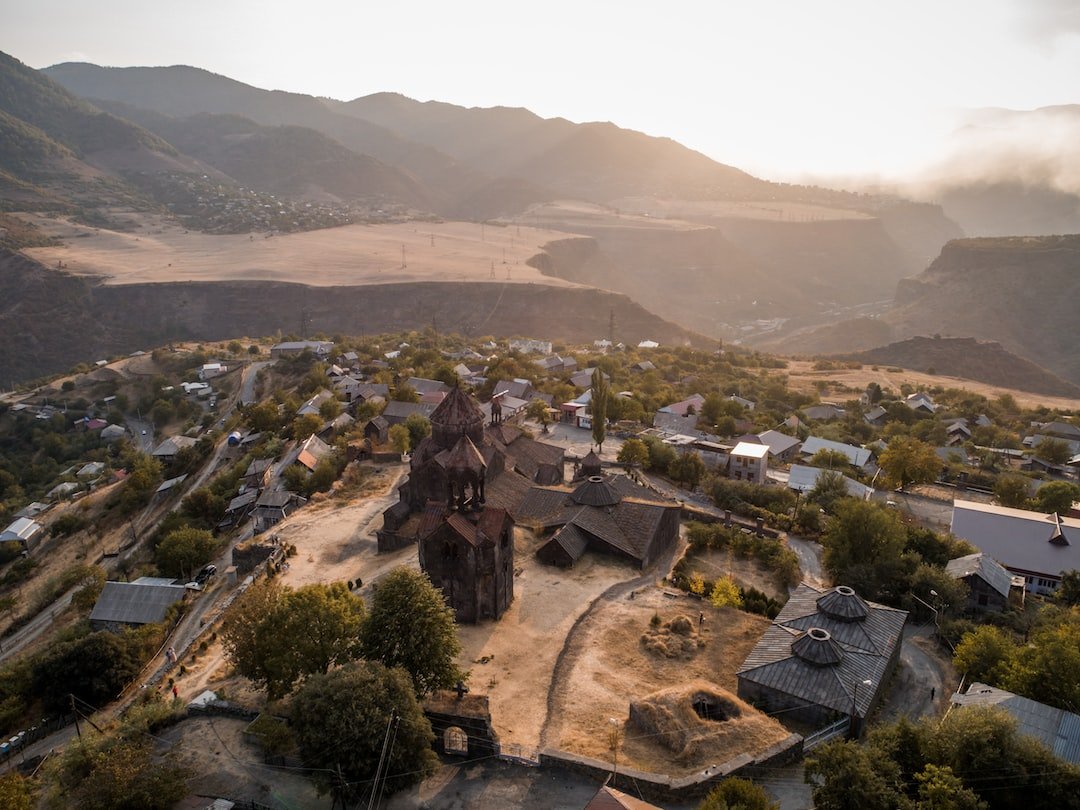Unveiling the Rich Tapestry of Traditional African Religions
Category : African Spiritual Beliefs | Sub Category : Traditional African Religions Posted on 2023-07-07 21:24:53

Unveiling the Rich Tapestry of Traditional African Religions
Introduction:
Africa has a rich and diverse cultural heritage that includes traditional religious beliefs. African religions have shaped the history, art, music, and societal norms of the region. We will explore the ancient belief systems' core tenets, rituals and their continued significance in modern African societies in this post.
1 There is diversity of traditional African religions.
Africa has over 1,000 distinct traditional African religions, each reflecting a particular ethnic group or region. The belief systems are based on the interconnectedness of humans, nature, ancestors, and the divine. The details, rituals, and deities differ significantly across different TARs, and there are similarities.
2 There are core beliefs and deities.
The Supreme Being is often considered omnipotent, omniscient, and inescapable in traditional African religions, and is known by various names, such as Olodumare (Yoruba), Mawu-Lisa (Ewe and Fon), or Nyame (Akan). The Supreme Being is believed to have created the world and its inhabitants.
Traditional African religions emphasize the veneration of ancestors. Ancestors are revered as being able to influence the lives of their descendants. These ancestral spirits can provide guidance from rituals and sacrifice.
3 There are rituals and ceremonies.
Traditional African religions have rituals and ceremonies that are used to connect with the spiritual realm and seek divine intervention. These rituals often involve chanting, dance, drumming, and the use of specific symbols and objects. Birth, marriage, and death are important events in individuals' lives and ceremonies help maintain harmony within communities.
In some TARs, rituals include divination practices where trained individuals interpret signs and symbols to provide guidance, healing, and predictions. Communal well-being, resolving conflicts, and fostering harmony are ensured by this process.
4 Significance in African societies.
Traditional African religions are still important despite the spread of world religions. The TARs are woven into the fabric of African culture. They give a sense of belonging and ancestral connections.
There has been a resurgence of interest in the ancient belief systems of the TARs. The legacy of the diverse TARs is ensured by ongoing research initiatives, which have been sparked by international recognition of their cultural significance.
Conclusion
Africa's rich cultural tapestry is a testament to the spirituality and interconnectedness of its people. Embedded in these belief systems are profound values, rituals, and practices that continue to shape the lives of millions across the continent. We gain a deeper understanding of Africa's cultural diversity and spiritual heritage by exploring and admiring ancient religions.
Leave a Comment:
SEARCH
Recent News
- Zurich, Switzerland is a vibrant city known for its rich cultural scene and diverse music offerings. One unique aspect of Zurich's music scene is the presence of Sudanese music, which has found a home in the city's melting pot of cultures.
- Zurich, Switzerland is a vibrant city known for its picturesque landscapes, rich history, and diverse cultural scene. One fascinating aspect of Zurich's cultural tapestry is the influence of Sudanese culture in the city.
- Zurich, Switzerland is known for its multicultural atmosphere and diverse culinary scene. One of the lesser-known gems of Zurich's food scene is Sudanese cuisine. Sudanese cuisine is a reflection of the country's diverse cultural influences, blending Arabic, African, and Mediterranean flavors to create a unique and delicious culinary experience.
- Zurich, Switzerland, is a vibrant city known for its scenic beauty, rich history, and thriving business environment. One interesting aspect of Zurich's business landscape is the presence of Sudanese entrepreneurs who have made their mark in various industries in the city.
- Visiting Zurich, Switzerland, can be an enriching experience for music lovers from all corners of the world. While the city may not be the first place that comes to mind when thinking about South African music, Zurich's diverse music scene offers a glimpse into the vibrant sounds of this African nation.
- Zurich, Switzerland: A Hub for Libyan Trade
- Zurich, Switzerland is a city known for its picturesque landscapes, high quality of life, and thriving economy. Recently, Zurich has also been making headlines in the energy sector with its growing interest and investment in Libyan energy resources.
- Zurich, Switzerland is a vibrant city known for its high quality of life, scenic beauty, and strong economy. This makes it an attractive destination for businesses from all over the world, including those from Libya.
READ MORE
3 months ago Category :

Zurich, Switzerland is a vibrant city known for its rich cultural scene and diverse music offerings. One unique aspect of Zurich's music scene is the presence of Sudanese music, which has found a home in the city's melting pot of cultures.
Read More →3 months ago Category :

Zurich, Switzerland is a vibrant city known for its picturesque landscapes, rich history, and diverse cultural scene. One fascinating aspect of Zurich's cultural tapestry is the influence of Sudanese culture in the city.
Read More →3 months ago Category :

Zurich, Switzerland is known for its multicultural atmosphere and diverse culinary scene. One of the lesser-known gems of Zurich's food scene is Sudanese cuisine. Sudanese cuisine is a reflection of the country's diverse cultural influences, blending Arabic, African, and Mediterranean flavors to create a unique and delicious culinary experience.
Read More →3 months ago Category :
